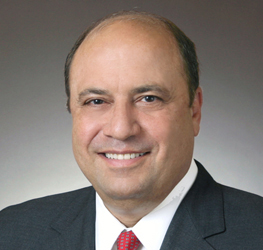Politics: State Senate Special Election Appears to Be Close
The special election for the state Senate District 8 seat formerly held by the late state Sen. James E. “Jim” King, Jr. appears to be a close race between former state House Speaker John Thrasher (R-St. Augustine) and anti-tax activist Dan Quiggle (R-Ponte Vedra Beach). The Republican primary in District 8, a largely coastal district that stretches from the Florida-Georgia state line to Volusia County, is set for September 15, 2009. Five Republicans have qualified for the September 15 primary, which will effectively decide the election. One write-in candidate also has qualified.
After serving in the state House, Mr. Thrasher became one of Tallahassee’s most prominent lobbyists as a principal in the Southern Strategy Group lobbying firm. Mr. Quiggle is the state chair of Americans for Prosperity and the president of a title insurance firm. Other leading candidates in the Republican primary are Stan Jordan of Jacksonville, a former state representative and former member of the Duval County School Board, and Art Graham of Jacksonville Beach, a former member of the Jacksonville City Council.
As of the end of August, the candidates had raised $776,282 in contributions, with Mr. Thrasher’s $401,311 accounting for more than half of the total. In addition to campaign spending by the candidates, other groups with affiliations to prominent plaintiff’s lawyers have funded extensive advertising campaigns in opposition to Mr. Thrasher.
The Insider Advantage polling firm reports that its poll, conducted in late August and early September, shows Mr. Quiggle with a one-point lead over Mr. Thrasher, but newspaper reports indicate that polls conducted for the Quiggle campaign show Mr. Quiggle with a nine-point lead.
Gaming: Governor Charlie Crist and Seminole Tribe Agree on New Gaming Compact
On August 31, 2009, Gov. Charlie Crist on behalf of the state signed a gaming compact with the Seminole Tribe of Florida. The 20-year agreement would require the tribe to share specified percentages of its gaming profits with the state, with a minimum payment of $150 million a year. The governor’s office estimates that the tribe would pay the state a total of $6.8 billion over the life of the compact.
The agreement will require legislative approval. During the 2009 legislative session, legislators passed SB 788, which set out the parameters for a gaming compact and required legislative ratification of any compact that differed from those parameters. In addition to differences over the amount to be paid to the state, key differences between the legislation and the August compact are:
- The legislation would have limited blackjack and other banked card games to three casinos in Broward County and Tampa, while the compact allows the tribe to run blackjack and other banked card games at all seven of its casinos
- The legislation would have allowed the expansion of slot machines to pari-mutuel facilities outside of Broward and Miami-Dade counties, while the compact gives the tribe the exclusive authority to operate slot machines outside of those two counties
- Under the legislation, the Division of Pari-Mutuel Wagering of the Florida Department of Business and Professional Regulation would have been responsible for monitoring compliance, while the compact designates the Florida Department of Revenue as the regulatory agency
Pari-mutuel operators have expressed their opposition to the new compact. Legislators have made it clear that approval of the compact will not be automatic.
Most observers expect the compact to be considered at a special legislative session before the end of the year.
Economy and State Budget: Shortfalls Expected to Continue for Next Three Years
The Florida Legislature’s Office of Economic and Demographic Research presented its long-range fiscal outlook to the Legislative Budget Commission on September 3, 2009. The legislative economists forecast continued deficits for the state fiscal years beginning in 2010, 2011, and 2012.
For the 2010 – 2011 fiscal year, the shortfall is expected to be at least $923 million for what budgeters refer to as the state’s “critical needs,” but could be as high as $2.6 billion if the state continues to fund “high-priority needs.” For the 2011 – 2012 fiscal year, a shortfall of $2.3 billion to $5 billion is expected. As the state economy recovers, a smaller shortfall is possible for 2012 – 2013, ranging from $1.1 billion to $5.2 billion.
A shortfall of $286 million is anticipated for the current budget year, which ends on June 30, 2010, but the state has sufficient reserves to cover the shortfall without further budget cuts.
Legislative economists now forecast that the state’s economic growth rates will lag behind any national economic recovery but will “begin a slow return to more typical levels.” For fiscal year 2010 – 2011, the economists expect weak national GDP growth, virtually no Florida population growth, and weak growth for Florida employment and personal income. By the following year, they forecast slow improvement in Florida’s unemployment rate and a return to normal or accelerated growth rates for most other measures of the Florida economy.
Public Policy News Alert is part of our ongoing commitment to providing up-to-the-minute information about pressing concerns or industry issues affecting our clients and our colleagues. If you have any questions about this alert or would like to discuss these topics further, please contact your Foley attorney or any of the following individuals:
|
Marnie George Michael P. Harrell Robert H. Hosay |
Jonathan P. Kilman Thomas J. Maida Leonard E. Schulte |

